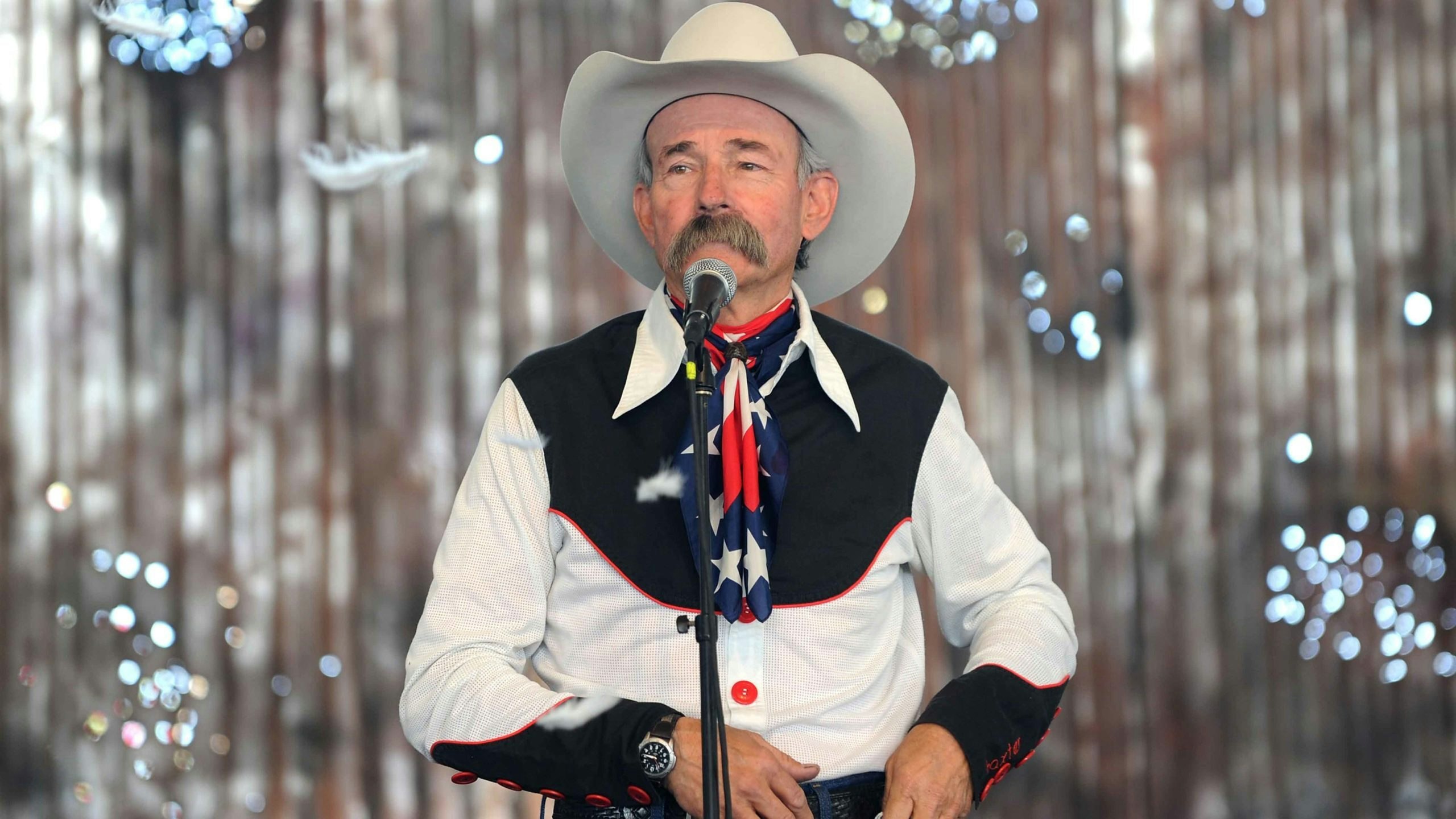Baxter Black had a way with words that connected with rural folks and brought the culture of cowboy and ranch life to a broader, more urban audience.
“And the mountains have shoulders like granite / They’re big and they make their own rules / So take what you need, but you’d better pay heed / ‘Cause the mountains don’t tolerate fools,” reads one of Black’s poems, titled “The West.”
The veterinarian-turned-cowboy-poet and author died last week at the age of 77 at his home in Benson, Arizona.
The prolific writer and performer came to fame in the late 1980s, when a poem he wrote and recorded about the Yellowstone National Park fires of 1988 caught the attention of public radio.
Black went on to speak at conventions and events across the country, wrote a weekly column (“On the Edge of Common Sense”) that was published by dozens of newspapers and became familiar to national television audiences through appearances on “The Tonight Show with Johnny Carson.”
Black’s success was an inspiration for others who enjoyed cowboy poetry. Waddie Mitchell, one of the co-founders of the annual National Cowboy Poetry Gathering in Elko, Nevada, told Cowboy State Daily that Black was a mentor to him, even if he wasn’t aware of it.
“He didn’t know he was teaching me,” said Mitchell, “but he already had it going, people wanting him to speak after dinner and people wanting him to do this. And at the time we first met (in the mid-1980s) he was really thinking, ‘It’s time maybe I try this full time.’ And that’s the only thing that ever gave me the guts to go at it full bore.”
Black’s veterinary career began in 1969, but he quit in the early 1980s to write and perform full-time. Since then, Black wrote more than 30 books of poetry and fiction and sold more than 2 million books, CDs and DVDs, making him perhaps the most well-known of the cowboy poets.
Dan Miller, a Cody entertainer and television host, said he first met Black around 20 years ago on a television project.
“When you think of American originals, I know that’s high praise, but I put Baxter Black in that category,” Miller said.
He recalled fondly his dinners with Black and his family at their home in Benson and the time the two spent playing music together.
“Baxter always said, ‘I’m no cowboy,’” Miller pointed out. “A lot of cowboy poets are cowboys or cowboy wannabes. Baxter knew his place in that world, from his veterinarian background. I think his overview of the cowboy way of life was such a unique perspective.”
Mitchell said there was a magnetism to Black’s personality, which added to his appeal.
“Have you ever had somebody come into the room, even if they were well known or not known, and just trap your attention?” said Mitchell. “I’ve seen that happen with him time and time again. He could go into a room and meet 30 people, shake their hands, make them all feel like he really had interest in them. And so they went away feeling good.”
“And by golly the next day, if he saw them, he could call their names,” Mitchell added.
“His sense of humor was so acute, and that to me always set him apart,” Miller said. “You know, a lot of his humor, you had to be a farmer and rancher to get it. But he was an entertaining, funny guy who genuinely cared about his audience.”
Mitchell pointed out that Black took his role as a storyteller seriously.
“People have forgotten that a storyteller is an important part of the human experience,” Mitchell said. “There’s something about somebody conveying stories or humor or just completely getting you enthralled with what’s going on in your own mind.”
Mitchell recalled a conversation he had with Black when they were both appearing on “The Tonight Show.”
“Baxter said, ‘You know, it’s primordial,’” Mitchell said. “‘The first story told was the first art – if the story was nothing more than how they killed that mammoth that day, it was still a story. And later on we got the stories through the cave paintings. And later on it just evolved and it split out – but art is storytelling.’”





